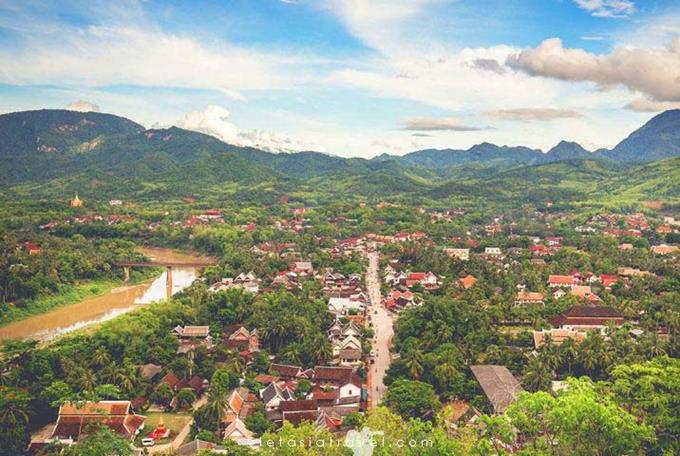Town of Luang Prabang
Luang Prabang is an outstanding example of the fusion of traditional architecture and Lao urban structures with those built by the European colonial authorities in the 19th and 20th centuries. Its unique, remarkably well-preserved townscape illustrates a key stage in the blending of these two distinct cultural traditions. The town of Luang Prabang was recognized as world heritage site by UNESCO in 1995.
Luang Prabang was the capital city of Laos in the 14th century until 1975. Now Luang Prabang is a city directly under Luang Prabang province. It is 425km to the north from Vientiane, near Mekong river.
The peaceful atmosphere, unique architecture and beautiful scenes are factors attracting tourists to the city. The image of many mendicant friars in orange cassock in old street every morning may be the most typical in Luang Prabang. Any visitors coming here try to get up early to see this scene and even want to genuflect along the street with people who bring food for monks.

Lao has the largest number of pagodas in the world, that's why a lot of old pagodas with special architecture are not-be-missed destinations by tourists. There are 34 Buddhist temples among Luang Prabang's colonial and Chinese architectures, all set in a backdrop of lush green mountains. The Mekong River frames the town's western border, and it remains an important commercial and recreational transportation link.
Vibrant cultural traditions, rituals and distinctive artwork such as temple murals, woodcarvings and pottery make Luang Prabang an attractive destination for a wide range of interests. Due to its outstanding cultural and natural features, the town was listed as a UNESCO World Heritage Site in 1995.
The best way to visit traditional house here is walking and riding bikes because almost all hotels, restaurants, coffee shops and street food vendors gather around the city, easier for visitors to explore Laos. One special point is that there are no modern house or over-2-floor house in the town of Luang Prabang.
Different from China Town in Singapore, Mongkoh in Hong Kong or Ben Thanh market in Vietnam which sell a lot of "made in China" souvenirs, toys and other products; the night market in Luang Prabang, Thailand only sells traditional products, hand-made products which are typical of Lao style.
